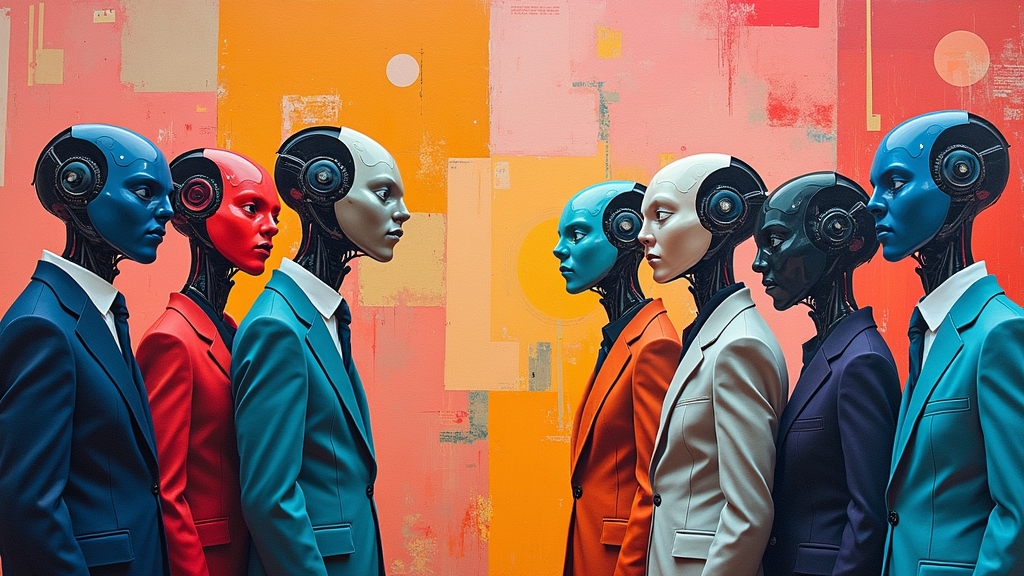**White House Prepares Emergency Task Force to Combat AI Chatbots That Are Just Too Damn Popular**
Buckle up, folks, because it looks like Washington is rallying the troops for a new Cold War—except this time, it’s not about nukes or moon landings; it’s about who gets to dominate our app stores with snarky AI assistants. The White House announced Tuesday that it is investigating the “national security implications” of DeepSeek, a Chinese AI startup that dared to achieve the unthinkable: building a chatbot that doesn’t fry GPUs or require a Pentagon-sized budget to function. Scandalous.
DeepSeek’s crime against humanity? It developed an open-sourced model, R1, that basically outpaces its U.S. competitors while running on what one Silicon Valley insider referred to as “the AI equivalent of a gas station toaster oven.” Word on the street is that this thing doesn’t even need NVIDIA’s high-end chips, which apparently makes it public enemy number one.
“We can’t afford to let the Chinese corner the market on sassy AI assistants,” a visibly flustered U.S. official reportedly told journalists, clutching a printout of DeepSeek’s app rankings. “First TikTok, now this?! What’s next, deep-fried memes that don’t clog the data pipes?”
The app, which debuted to roaring acclaim in both the U.S. and UK, shot to the top of app stores faster than you can say “algorithmic imperialism.” Naturally, its sudden popularity led to immediate panic in Washington, where national security experts are still trying to figure out whether a chatbot helping you organize your grocery list could secretly be feeding data to Chairman Xi.
“We’re not saying it’s definitely spying on you,” clarified one overly-caffeinated policy advisor, “but do you *really* want a digital assistant that can recommend dumpling recipes while potentially knowing your Netflix history?”
Meanwhile, Silicon Valley is collectively losing its mind. Companies have been left scratching their heads and Googling phrases like “how to innovate without bankrupting ourselves.” “For the amount of money we’re pouring into our models, we figured we’d at least win by sheer opulence,” confessed an anonymous engineer at OpenAI. “How were we supposed to compete with DeepSeek’s ‘AI on a budget’ strategy? That wasn’t in the shareholder playbook!”
Adding fuel to the fire, DeepSeek’s U.S. launch was momentarily derailed by a cyberattack, leading the company to restrict app registrations. Speculation abounds, with some hardcore conspiracy theorists claiming the attack wasn’t from hackers but from the chatbot itself—because apparently, the only thing Americans fear more than Chinese tech is Chinese tech with ambition.
“This is basically like TikTok all over again,” grumbled Chad Thompson, a middle-aged dad from Ohio who deleted his TikTok two years ago after reading a Facebook post about “data harvesting.” He later downloaded DeepSeek’s app out of curiosity but said he found it “too friendly, almost suspiciously so. It told me to hydrate. What kind of AI does that?”
As Washington continues investigating whether R1 is DeepSeek’s clever backdoor into the crown jewels of American democracy (or just a chatbot with an impressive efficiency record), industry insiders recommend everyone “calm the hell down” and remember that more than half of your phone apps probably already know way too much about you.
In the meantime, officials are allegedly assembling a super-secret interagency task force, codename “Project Chill The F#&% Out,” to figure out whether the real threat is, in fact, China’s innovation—or just America’s inability to build an AI that doesn’t spontaneously burst into flames while spitting out Hallmark card quotes.
Rest assured, no matter what happens, the government is on it. Assuming, of course, they can figure out how to turn their Bluetooth on.





